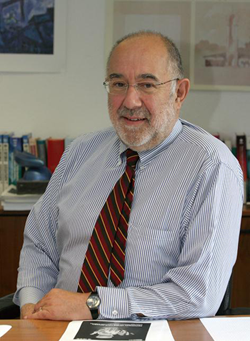


Dr. Joao Schwarz da Silva was born in 1944 in Portugal. He received a PhD on the Performance Analysis of Mobile Packet Radio Systems from Carleton University, Ottawa, Canada in 1981 and a Master and Bachelor’s degree on Electrical Engineering from the Ecole Polytechnique, Montreal, Canada in 1971 and 1970. He started his career at the Ministry of Communications of Canada where he occupied several engineering positions in various domains including, spectrum management, educational delivery networks, packet radio, satellite telecommunications and computer communications network design. He was instrumental in the design of CANUNET the first Canadian University Computer Netwok. While in Canada he was appointed on a regular basis as assistant Professor at Carleton University, where he taught courses on Stochastic Processes, Distributed Database Management Systems and Computer Communications. He was invited by the ITU as a senior field expert responsible for the planning of AM and FM broadcast networks in Guinea-Bissau and was seconded to Saudi Arabia for the setting up of the computerised spectrum management system for the Kingdom.
He left Canada in 1982 to join the International Telecommunications Union in Geneva where he was appointed as the Head of a multinational team in charge of the development of the HF world-wide planning system. While in the ITU, he was also responsible for the development of computerized spectrum management systems for developing countries and participated actively in various CCIR Study Groups, notably SG 1, 6 and 8 and Regional and World Administrative Radio Conferences.
He joined the European Commission in 1991 where took on several positions, including that of Head of Unit responsible for Mobile and Wireless Communications, Mobile and Broadband Communications and Networked Audio-Visual Systems and Applications. In the period up to 1998 he was instrumental in the EU efforts towards the design and development of UMTS (3G networks) having managed a key set of R&D projects, that led to the landmark decisions of ETSI in 1998. He further on launched the UMTS Task Force that later became the UMTS Forum and was the intiator of a series of annual Conferences on Mobile and Wireless Communications now in their 14th year of operation. He was also the prime mover and instigator of the IPv6 European Task Force that now guides the work of a number of national IPv6 Task Forces.
He is currently Director of the Network and Communication in Directorate of DG-INFSO where he oversees all the R&D work relating to mobile communications, broadband networks including satellite communications, audio-visual and home networks; trust and security, software engineering and ICT for business applications. The area of work of the Dirctorate covers a wide-ranging set of issues, such as digital divide issues, IPv6, Next Generation Networks, optical infrastructures, fourth generation wireless systems and networks, network convergence, interoperability, digital rights management, biometrics, network resilience, open source developments, digital business eco-systems and RF tags. He is the recipient of the first UMTS award by the UMTS Forum. He is the author of some 50 technical ande scientific papers and books and has been invited as guest editor of IEEE Communications and Personal Communications Magazine.